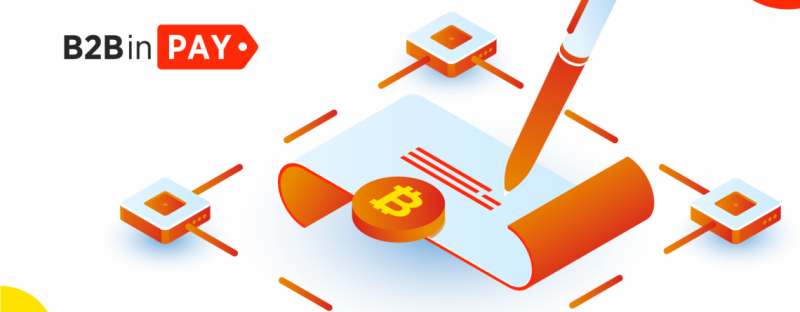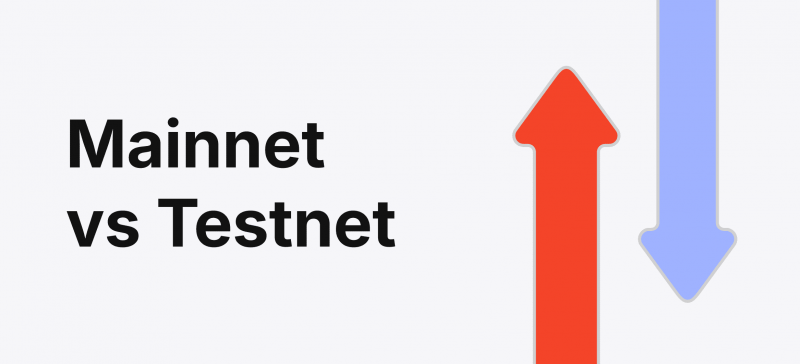Smart contracts are the programming foundation of decentralised apps, cryptocurrencies, and other blockchain technologies. In essence, these neat lines of code can execute any given command flawlessly and without the possibility of tampering. With their invention, blockchain technology has broadened its horizons regarding diversity and possibilities.
Today, smart contract applications are in high demand in the software market, enabling companies to automatically execute specific contract terms like discounts, rebates, employee salaries, etc. Smart contracts have effectively transcended the crypto family and become a mainstream technology with numerous utilities.
Key Takeaways
- SCs require specific programming knowledge to be written properly and without mistakes. Currently, the demand for SC developers significantly transcends the market supply.
- Aside from due diligence, it is important to consider additional audits and inspections to ensure that your smart contracts will function flawlessly and execute commands precisely.
- Due to blockchain technology, SCs can instantly execute various commands without third-party intervention or delays.
What is a Smart Contract?
Smart contracts (SCs) are conditional “if” statements written as lines of code. They include all prerequisites and conditions of a given contract and corresponding outcomes to be honoured.
Once the criteria for contract completion have been honoured, a smart contract executes the other half of the agreement. This could be a variety of actions, from transferring funds and exchanging assets to simply providing information to a second party.
Unlike traditional contracts, SCs assure involved parties that the contract will be honoured if all underlying conditions are met. With SCs, there is no need for human intervention, as everything is carried out through a decentralised protocol automatically.
Rising Popularity of Smart Contracts
While big corporations and companies were slow to adopt other crypto technologies, they swiftly understood the importance of SCs, as the possibilities for efficiency and productivity are endless.
Some of the most established smart contract examples are clinical data sharing, supply chain management, property market transactions, etc. Some countries even consider utilising this technology as a building block for their upcoming elections to ensure maximum security and eliminate human error.
How Smart Contracts Work
Now, let us get into the technical side of SCs. As discussed, SCs are digital alternatives to traditional legal agreements. However, they are simple lines of code built into their respective blockchain platform. Innovative contract development is not easy, though, as it requires a firm grasp of the blockchain methodology and how it treats the protocol execution.
Despite the technical difficulties, a blockchain-based smart contract concept is quite simple. Let us examine a practical use case:
Smart Contracts Example
Let us imagine a specific crypto developer, X, who wants to issue a new coin with several utilities tied to its purchase. When this coin A gets purchased on the market, it needs several automatic features for its buyers. The whole point is to deliver these benefits to a customer without outside intervention or chances of tampering.
Thus, crypto developer X utilises an SC to achieve this goal. Developer X hires a smart contract engineer to manage the technical work. First, developer X identifies the optimal amount of utilities that must be transferred to the coin owner at specific periods. These conditions are then converted into the SC lines of code and pasted within the protocols of a given blockchain platform.
Finally, developer X has issued coin A on the market. The real work begins as the SCs are put to the test. Coin A has several milestones as conditions. Every month, coin holders will receive various benefits for owning coin A. So, the smart contract’s code needs to recognise the passage of time and distribute the corresponding benefits in due course.
If appropriately written and pasted on a well-functioning blockchain platform, SCs will have no trouble executing this command momentarily. This way, the owners of coin A will have a guarantee that they will receive benefits automatically and without reconsideration. That is the power of SCs, giving involved parties peace of mind when fulfilling their respective ends of the agreement.
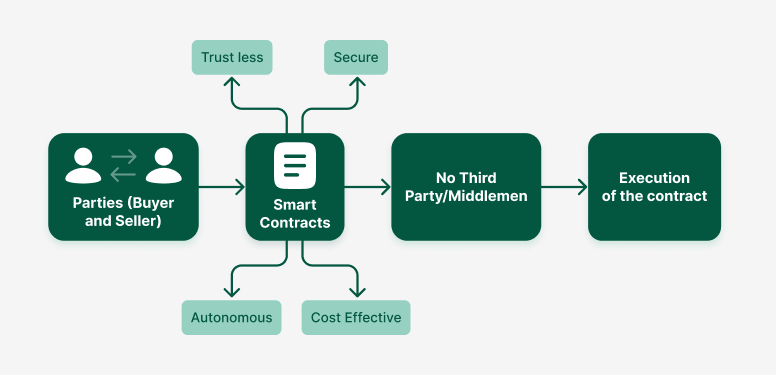
Pros and Cons of Smart Contracts
Now that we understand the fundamental concept of SCs, let us examine the primary advantages and disadvantages of using these automated agreements.
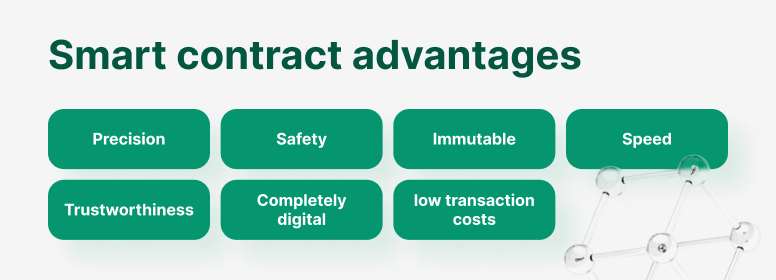
Efficient and Precise
As discussed, SCs have a massive advantage over traditional contracts thanks to their automated nature. Manually written contracts are susceptible to confusing terms and conditions and human error. With SCs, things are much simpler and more streamlined. The terms and conditions are written clearly, and no room for interpretation could harm the parties involved in a given agreement.
Additionally, smart contracts are exponentially faster than standard contracts, as there is no need for numerous checks, signatures, three-way confirmations, and similar procedures. SCs do all the heavy lifting as long as sufficient and reliable data regarding the contract conditions exist.
Due to this unprecedented efficiency, many companies have implemented SCs to pay salaries, deliver compensations for damaged goods to their clients, and numerous other routine procedures.
Unchangeable and Unmodifiable
While standard contracts depend on the competency of involved parties and respective local regulations, SCs are computer programs with no biases, ulterior motives, or the ability to change their minds. One smart contract is all you need to ensure a deal will be executed on both sides without delay or manipulation.
This simple yet effective assurance method gives contract participants the luxury of confirmation. In other words, if your priority is to guarantee instant contract execution, SCs are a go-to solution on the market.

Inevitability and Absence of Regulations
The last stated advantage of SCs also serves as one of its weaker points in a different context. The immutability of SCs guarantees that the contract terms will not change under any circumstances. While that is a good reassurance in some cases, numerous contracts must change or be amended frequently.
In this case, SCs might become troublesome to utilise. You need to develop an entirely new SC protocol that reverses the previous contract, and then you need yet another SC package to set the revised terms. With frequent amendments, this process can quickly become expensive and time-consuming.
Additionally, most crypto markets lack the strict regulations of traditional financial markets. Therefore, there is an increased chance of fraud or asset misappropriation without any security measures.
Dependence on Programmers
Any given SC is a computer program that needs to be designed and written by a professional SC engineer. So, despite their automated nature and immutability, SCs are still susceptible to human error in the initial stages of development. In the above discussions, we have assumed that the SC terms are written perfectly and without any loopholes.
However, in practice, that is not always the case. As with any other piece of software, SCs could have flaws due to human error. Sometimes, these flaws might be immaterial, but they could have various negative consequences in other cases. There have been numerous cases where faulty smart contracts have resulted in lost funds, premature distribution, and other undesirable outcomes.
Therefore, various firms offer smart contract audit services to exchange platforms and other companies to extensively inspect SC protocols and identify any errors or potential risks.
SCs are a marked improvement over traditional contracts when it comes to security, efficiency, and speed of honouring agreements.
How Blockchain Technology Makes SCs Possible
Although we have discussed SCs in detail, we have yet to mention the primary building block of this technology. Blockchain is what makes everything flow with SCs. In fact, every feature of SCs discussed above is made possible through blockchain decentralised methodology.
Unlike traditional transaction software, blockchain does not require third parties to carry out various transactions. Therefore, blockchain operations are swift, efficient, and low-cost. Smart contracts on blockchain enjoy the very same benefits since they are built on this foundation and function with blockchain technology.
As of 2023, many experts believe that SCs are by far the most productive utilisation of blockchain tech since they allow users to benefit from blockchain methodology and apply it to limitless scenarios in the business world.
How to Make a Smart Contract
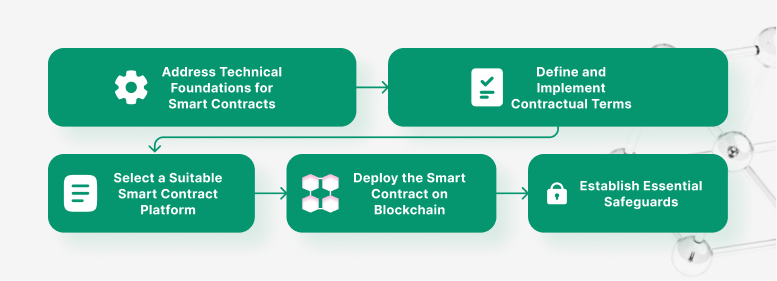
If you’re interested in creating a smart contract of your own, there are several factors that you should examine closely.
The Technical Side of Crafting Smart Contracts
First things first – creating a proper SC requires the brainpower of smart contract developers. This might prove to be a costly endeavour since there aren’t many SC experts available on the market.
Blockchain programming is among the newest and least adopted programming languages today. So, due to considerable market demand, you can expect to pay significant salaries for a bona fide SC specialist.
Identify and Implement Proper Contract Terms
Once you acquire relevant professionals to handle the coding aspect, it is time to set the contract terms diligently. Remember, identifying the correct sequence and nature of terms and conditions can save you a lot of hassle and sunk costs. Additionally, it is wise to consult contract law specialists to ensure your agreement doesn’t violate any pertinent laws and regulations.
Select the Perfect SC Platform for Your Needs
The crypto market is ripe with various blockchain platforms that offer smart contract development opportunities. While Ethereum smart contracts dominate the market with top-tier features, robust functionality, and overall ease of use, other inviting options do exist.
Ultimately, choosing an SC blockchain platform comes down to personal and business preferences that vary case by case. For example, a Bitcoin smart contract can accommodate your needs if you’re looking for maximum security. Conversely, if you prioritise low transaction costs, a Polygon smart contract offers the lowest gas fees out of all established platforms. So, it is important to analyse your unique needs and decide accordingly.
Deploy the Smart Contract onto the Blockchain Platform
After that, your SC specialist will transform your agreement terms into a smart contract code that goes straight into a respective blockchain platform. Finally, the smart contract gets activated and is ready to execute the specified commands. Now, the ink is dry on your digital contract, and there is no going back, for better or worse.
Have Appropriate Safeguards
While this guideline section is technically optional, we heavily encourage aspiring SC creators to implement certain security measures. Auditing SCs might be an expensive venture, but keeping your contracts error-free and precise can pay off in the long run.
Remember, you are still dealing with a piece of software that could break down, experience technical problems, or turn out faulty due to a human error. So, double-checking your protocols with the help of experts could save you a lot of financial and business trouble.
Summary
SCs are one of the most promising products of the blockchain technology wave. They are living proof that blockchain is not just about the emergence of cryptocurrency, but this transcendent technology has other vital applications. With SCs becoming increasingly popular outside the crypto landscape, the future is bright for the entire Web 3.0 concept.
Blockchain experts around the world speculate that SC technology has long legs when it comes to global commerce. Large corporations and industry leaders are actively adopting smart contracts into their existing digital ecosystems. So, if you’re interested in deepening your expertise in this field, chances are that your efforts won’t go unnoticed!






